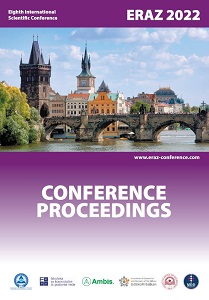Achieving Disclosure Efficiency Regarding the Climate-Related Issues: A Unique Challenge to the Present-Day Corporate Reporting
Achieving Disclosure Efficiency Regarding the Climate-Related Issues: A Unique Challenge to the Present-Day Corporate Reporting
Author(s): Hristina Oreshkova
Subject(s): Energy and Environmental Studies, Green Transformation
Published by: Udruženje ekonomista i menadžera Balkana
Keywords: Sustainability; Sustainable development; Climate change; Disclosures on climate-related issues
Summary/Abstract: Over the recent decades, climate change has been intensifying. The problems caused by climate change are unique. The process creates an existential threat to humans and other living beings interrelated with another risk arising from the crisis caused by biodiversity deterioration and environmental degradation. The coexisting impacts of both factors on people, biodiversity, economic sectors, and entities pose unprecedented challenges to humankind. The present-day unfavorable impacts of climate change require adequate governmental, and managerial strategies, policies, and activities as well as administrative actions for achieving sustainable, fair, and resilient growth. Phenomena and processes indicating climate change are developing on a global scale. That gives rise to discussions and highlights and justifies the need for meaningful, transparent, and complete climate-related disclosures. The necessity of trustworthy disclosures on climate-related matters and inherent risks and opportunities related to adaptation to climate change and its mitigation is a problem of crucial importance to the article. The relevance of climate-related disclosures as a significant part of present-day corporate reporting proves to be of great significance for achieving disclosure efficiency. The author aims to highlight, discuss and justify the necessity of applying a responsible approach to carry out an adequate disclosure policy and provide meaningful, consistent, and comparable disclosures on climate-related matters, risks and opportunities considered a significant part of present-day corporate reporting, and substantiate why probable benefits for a sustainable future can be expected, not only for the company. The terminology of the research is in the field of financial and non-financial reporting and their regulatory frameworks that are still not fully aligned. Heuristic methods of knowledge – analysis and synthesis, induction and deduction, descriptive approach, and techniques such as observation, analogy, comparison, and others are applied, for achieving the author’s objective.
Book: ERAZ 2022 / 8 - Knowledge-Based Sustainable Development - CONFERENCE PROCEEDINGS
- Page Range: 117-131
- Page Count: 16
- Publication Year: 2022
- Language: English
- Content File-PDF

